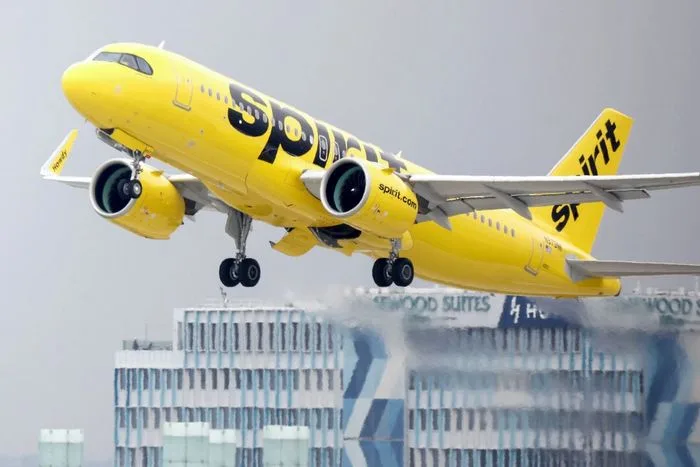By Mary Prenon
For the second time in less than a year, Spirit Aviation Holdings, Inc., the parent company of Spirit Airlines LLC, announced on Aug. 29 a comprehensive restructuring of the Florida-based air carrier. The company has filed voluntary petitions for Chapter 11 in the U.S. Bankruptcy Court for the Southern District of New York.
In a company statement, Spirit noted that the filing will provide the airlines with the time needed to continue its ongoing discussions with financial creditors and others to transform the company into a more financially and operationally sound organization.
“Since emerging from our previous restructuring, which was targeted exclusively on reducing Spirit’s funded debt and raising equity capital, it has become clear that there is much more work to be done and many more tools are available to best position Spirit for the future,” President and CEO Dave Davis said.
“After thoroughly evaluating our options and considering recent events and the market pressures facing our industry, our Board of Directors decided that a court-supervised process is the best path forward to make the changes needed to ensure our long-term success.”
As a result of the filing, Spirit expects to be delisted from the New York Stock Exchange in the near term. The company also expects that its common stock will continue to trade in the over-the-counter marketplace through the Chapter 11 process. The shares are expected to be cancelled and have no value as part of the firm’s restructuring.
During this process, guests can continue to book flights, travel, and use tickets, credits, and loyalty points. Employee wages and benefits will continue to be paid, as well as goods and services provided by vendors and suppliers.
As part of its restructuring plan, Spirit will focus its flying on key markets, offering more destinations, frequencies, and connectivity in focus cities. The company also plans to reduce travel in other markets.
In addition, the airline intends to ensure its fleet size matches capacity, which it says will significantly lower Spirit’s debt and lease obligations, as well as generate hundreds of millions of dollars in operational savings each year.
New plans involve providing consumers with three travel options: Spirit First, Premium Economy, and Value. The airline plans to expand its offerings to give travelers what they want at every price point.
“As we move forward, guests can continue to rely on Spirit to provide high-value travel options and connect them with the people and places that matter most,” Davis added.
The company initially filed for Chapter 11 protection in November 2024 amid heightened financial pressure and emerged from bankruptcy in March of this year.
Just days before Spirit’s announcement, competitor Frontier Airlines committed to being the top low-fare carrier in the top 20 U.S. metro areas. In a company statement, Frontier said it is launching 20 new routes from Detroit, Houston, Baltimore, Fort Lauderdale, Charlotte, and Dallas, with fares starting at just $29.
“Frontier is not just about delivering low fares – we’ve made major enhancements, from product upgrades to the most rewarding loyalty program, and investments in technology and service,” Barry Biffle, Frontier CEO, said in a statement. “That’s why Frontier is America’s Low Fare Airline, delivering the best value every day.”
The Denver-based airline is planning to add to its fleet and route expansion for 2026 and offer additional consumer perks. These include upgraded seating options with extra leg and elbow room in the first two rows of the aircraft and added benefits to the “Frontier Miles” loyalty program.






